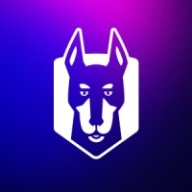

Snyk and Cribl compete in the software security and data management categories, respectively. Snyk appears to have the upper hand due to its comprehensive vulnerability detection capabilities, enhancing ROI in security management.
Features: Snyk is renowned for its simplicity, low cost, and self-service options, featuring extensive integrations with CI/CD systems and accurate vulnerability detection. It offers container security and code vulnerability scanning suitable for developers. Cribl excels in real-time data transformation, extensive log routing, and data reduction/masking, providing flexibility in data processing and reducing log ingestion costs.
Room for Improvement: Snyk users desire broader language support, improved static and dynamic analysis, and better user notification controls. Enhancements in container security reporting are also necessary. Cribl users express a need for backward compatibility with legacy infrastructure, improved documentation, and enhanced log aggregation capabilities.
Ease of Deployment and Customer Service: Snyk is primarily deployed in Public and Private Clouds, with strong technical support, although outreach and faster responsiveness could improve. Cribl offers deployment flexibility across On-premises and Hybrid Clouds, coupled with responsive technical support and a user-friendly interface. Snyk's proactive support contrasts with Cribl's detailed technical engagement and assistance.
Pricing and ROI: Snyk's pricing, while premium, is justified by its comprehensive security features, delivering significant ROI through vulnerability management. Some buyers consider it costly. Cribl provides a cost-effective alternative to tools like Splunk, lauded for its scalable pricing model and data handling efficiency, reducing enterprise-level licensing costs.
What we've seen is really an overall reduction of just shy of 40% in our ingest into our SIM platform versus prior to having Cribl.
The second thing is that data aggregation, sampling, and reduction that we're able to do of the data, lowering our overall data volume, both traversing the network as well as what's being stored inside of our final solutions.
In terms of reduction, we were able to save almost ~40% of our total cost.
I can see that Snyk saves the costs of hiring security developers for vulnerability scanning and security checks, as that responsibility is now managed by Snyk.
They had extensive expertise with the product and were able to facilitate everything we needed.
Usually, within an hour, we get a response, and we are able to work with them back and forth until we resolve the issues.
Sometimes by hearing the problem itself, they will know what the solution is, and they will let us know how to resolve it, and we do it immediately.
Our long-standing association has ensured smooth communication, resulting in favorable support experiences and satisfactory issue resolution.
Their response time aligns with their SLA commitments.
We could understand the implementation of the product and other features without the need for human interaction.
The infrastructure behind Cribl Search is also scalable as it uses a CPU and just spawns horizontally more instances as it demands and requires.
Compared to other SIEM tools I use, any slight change on the operating system end impacts a lot on our SIEM tools and other things, but Cribl performs well in that regard.
It's an enterprise version, and we have a good amount of users using this solution.
Snyk allows for scaling across large organizations, accommodating tens of thousands of applications and over 60,000 repositories.
Snyk is very scalable and can handle my organization's growth and changing needs.
Migrating from those SC4S servers to Cribl worker nodes has truly been a game-changer.
Regarding scalability, we started with zero servers and have around 285 servers now.
I would rate the stability as ten out of ten.
A more stringent role-based access control feature would enhance security and allow granular control over what users can see and access.
If we can have more internal logs and more debug logs to validate the error, that would be beneficial because instead of reaching out to Cribl support, we can troubleshoot and find the root cause ourselves.
In terms of large datasets—whether they originated from network inputs, virtual machines, or cloud instances—ingesting the data into the destination was relatively easy.
It lacks the ability to select branches on its Web UI, forcing users to rely on CLI or CI/CD for that functionality.
The inclusion of AI to remove false positives would be beneficial.
As we are moving toward GenAI, we expect Snyk to leverage AI features to improve code scanning findings.
Over time, the licensing cost has increased.
Cribl is very inexpensive, with enterprise pricing around 30 cents per GB, which is really decent.
They have a universal license that allows us to consume the portions of Cribl that we want to use or flex into other portions of Cribl.
Snyk is recognized as the cheapest option we have evaluated.
After negotiations, we received a special package with a good price point.
Snyk is less expensive.
The data reduction and preprocessing capabilities make Cribl really unique.
Cribl has a feature called JSON Unroll or Unroll function that allows you to differentiate the events; each event will come ingested as a single log instead of piling it up with multiple events.
The Cribl UI is very simple and easy to use, particularly when working with data from various sources; it makes it very easy to create pipelines, add complex logic to those pipelines, and then gives you a preview of what your data looks like before applying that pipeline and what you get after.
Our integration of Snyk into GitHub allows us to automatically scan codebases and identify issues, which has improved efficiency.
Snyk helps detect vulnerabilities before code moves to production, allowing for integration with DevOps and providing a shift-left advantage by identifying and fixing bugs before deployment.
Snyk has positively impacted my organization by improving the security posture across all software repositories, resulting in fewer critical vulnerabilities, more confidence in overall product security, and faster security compliance for project clients.
| Product | Market Share (%) |
|---|---|
| Cribl | 1.2% |
| Snyk | 1.0% |
| Other | 97.8% |


| Company Size | Count |
|---|---|
| Small Business | 9 |
| Midsize Enterprise | 5 |
| Large Enterprise | 18 |
| Company Size | Count |
|---|---|
| Small Business | 21 |
| Midsize Enterprise | 9 |
| Large Enterprise | 21 |
Cribl offers advanced data transformation and routing with features such as data reduction, plugin configurations, and log collection within a user-friendly framework supporting various deployments, significantly reducing data volumes and costs.
Cribl is designed to streamline data management, offering real-time data transformation and efficient log management. It supports seamless SIEM migration, enabling organizations to optimize costs associated with platforms like Splunk through data trimming. The capability to handle multiple data destinations and compression eases log control. With flexibility across on-prem, cloud, or hybrid environments, Cribl provides an adaptable interface that facilitates quick data model replication. While it significantly reduces data volumes, enhancing overall efficiency, there are areas for improvement, including compatibility with legacy systems and integration with enterprise products. Organizations can enhance their operational capabilities through certification opportunities and explore added functionalities tailored towards specific industry needs.
What are Cribl's most important features?Cribl sees extensive use in industries prioritizing efficient data management and cost optimization. Organizations leverage its capabilities to connect between different data sources, including cloud environments, improving both data handling and storage efficiency. Its customization options appeal to firms needing specific industry compliance and operational enhancements.
Snyk excels in integrating security within the development lifecycle, providing teams with an AI Trust Platform that combines speed with security efficiency, ensuring robust AI application development.
Snyk empowers developers with AI-ready engines offering broad coverage, accuracy, and speed essential for modern development. With AI-powered visibility and security, Snyk allows proactive threat prevention and swift threat remediation. The platform supports shifts toward LLM engineering and AI code analysis, enhancing security and development productivity. Snyk collaborates with GenAI coding assistants for improved productivity and AI application threat management. Platform extensibility supports evolving standards with API access and native integrations, ensuring comprehensive and seamless security embedding in development tools.
What are Snyk's standout features?Industries leverage Snyk for security in CI/CD pipelines by automating checks for dependency vulnerabilities and managing open-source licenses. Its Docker and Kubernetes scanning capabilities enhance container security, supporting a proactive security approach. Integrations with platforms like GitHub and Azure DevOps optimize implementation across diverse software environments.
We monitor all Application Performance Monitoring (APM) and Observability reviews to prevent fraudulent reviews and keep review quality high. We do not post reviews by company employees or direct competitors. We validate each review for authenticity via cross-reference with LinkedIn, and personal follow-up with the reviewer when necessary.